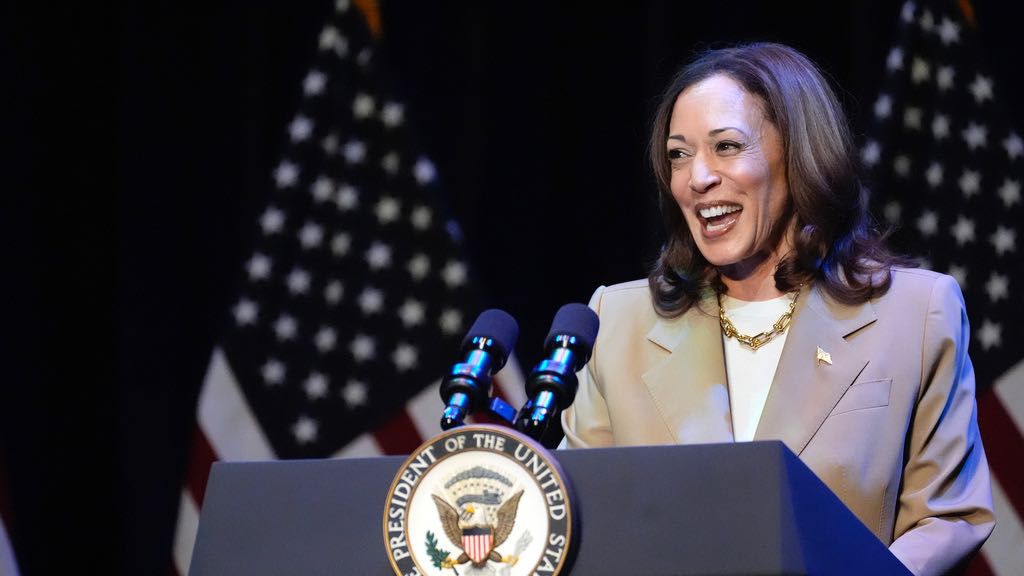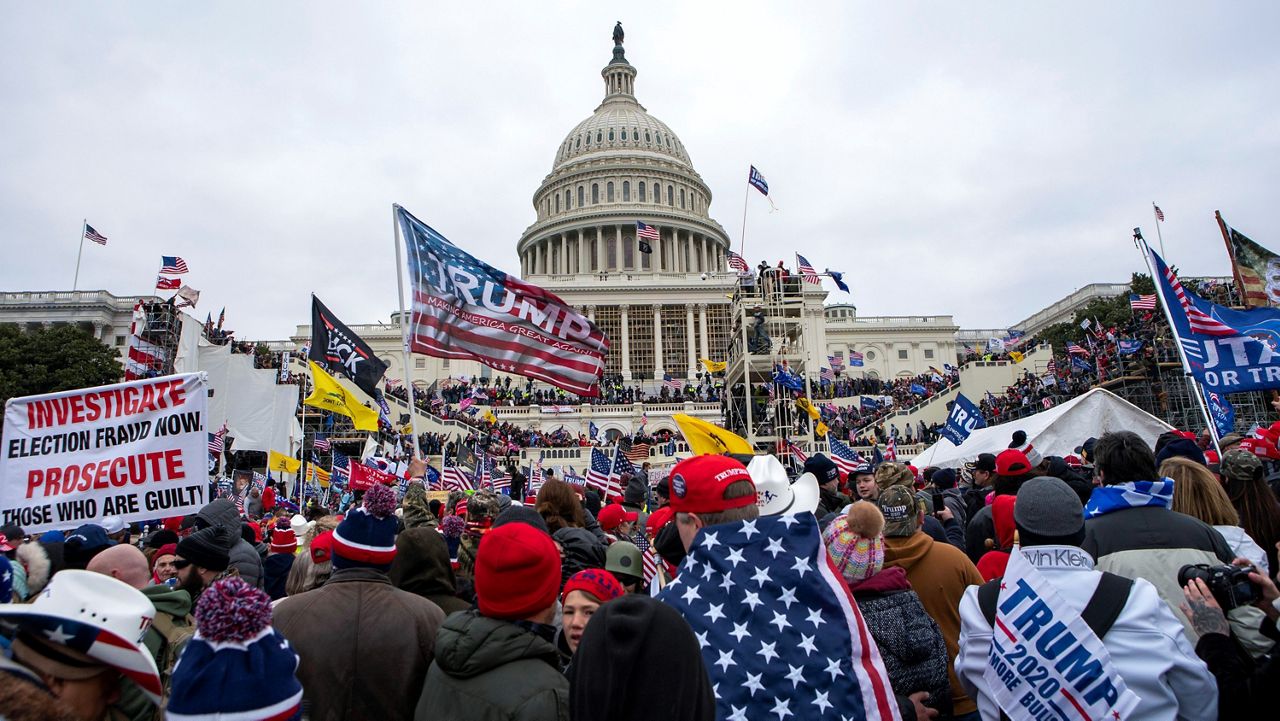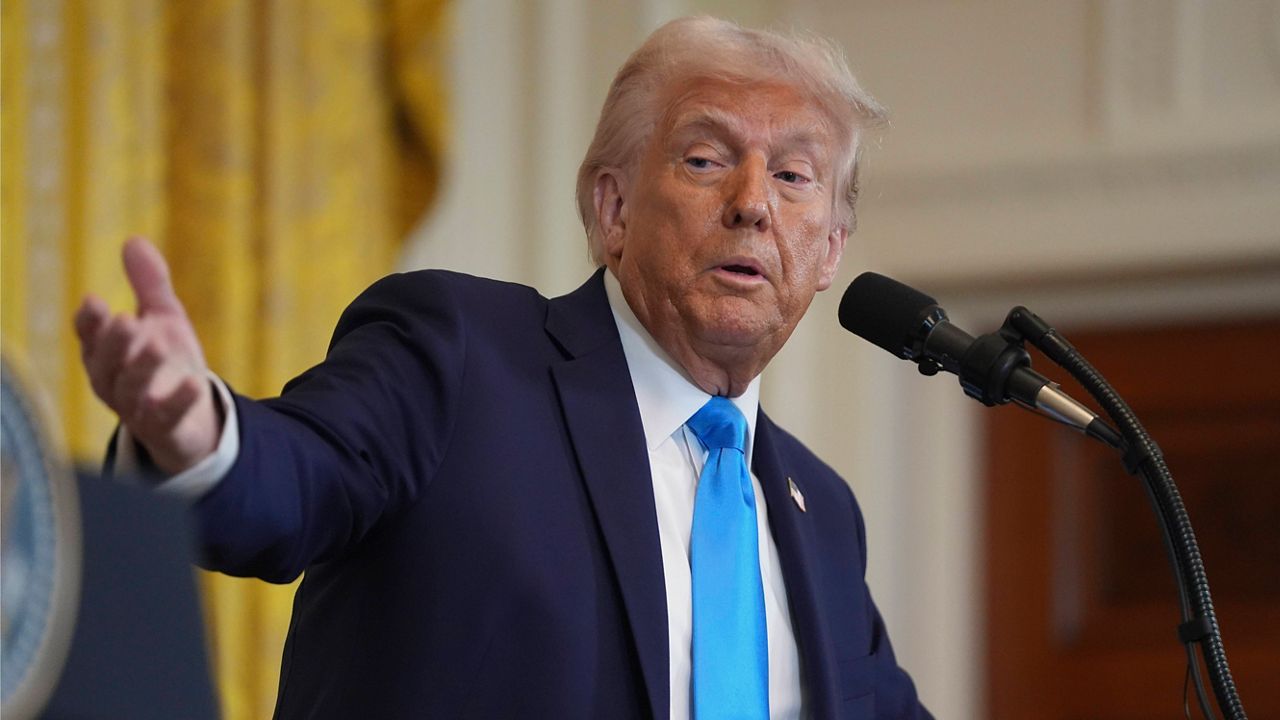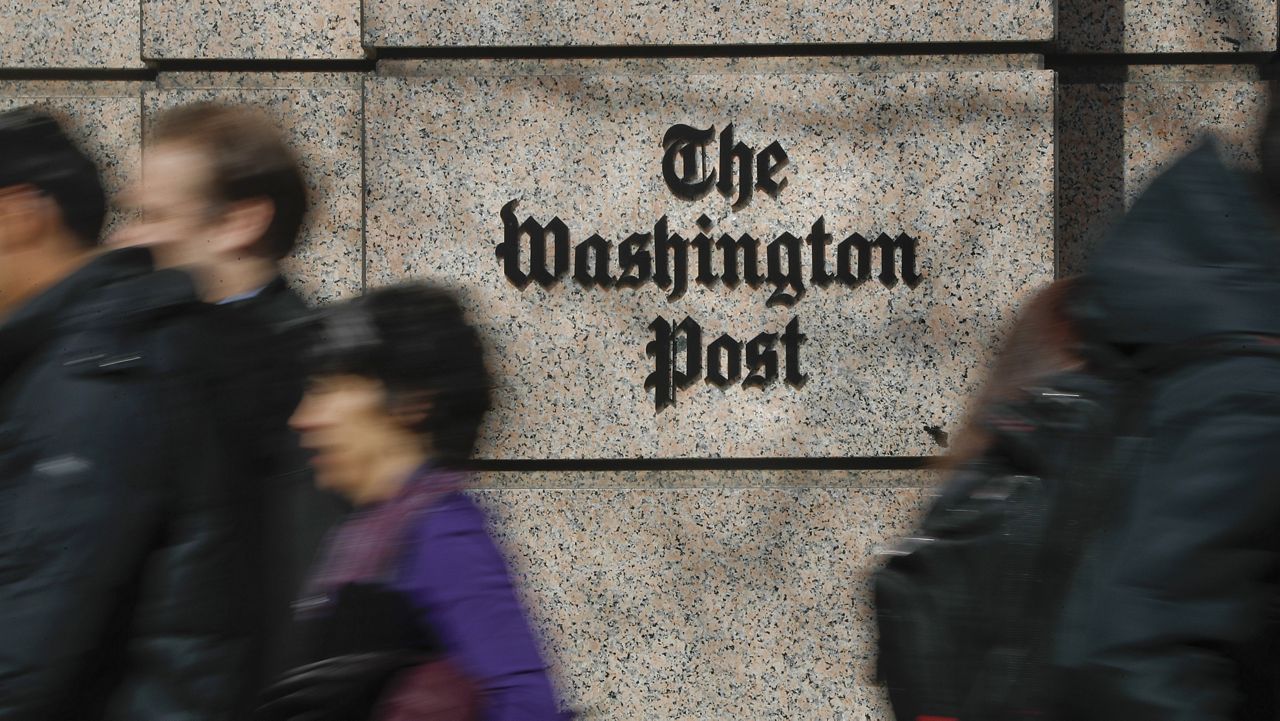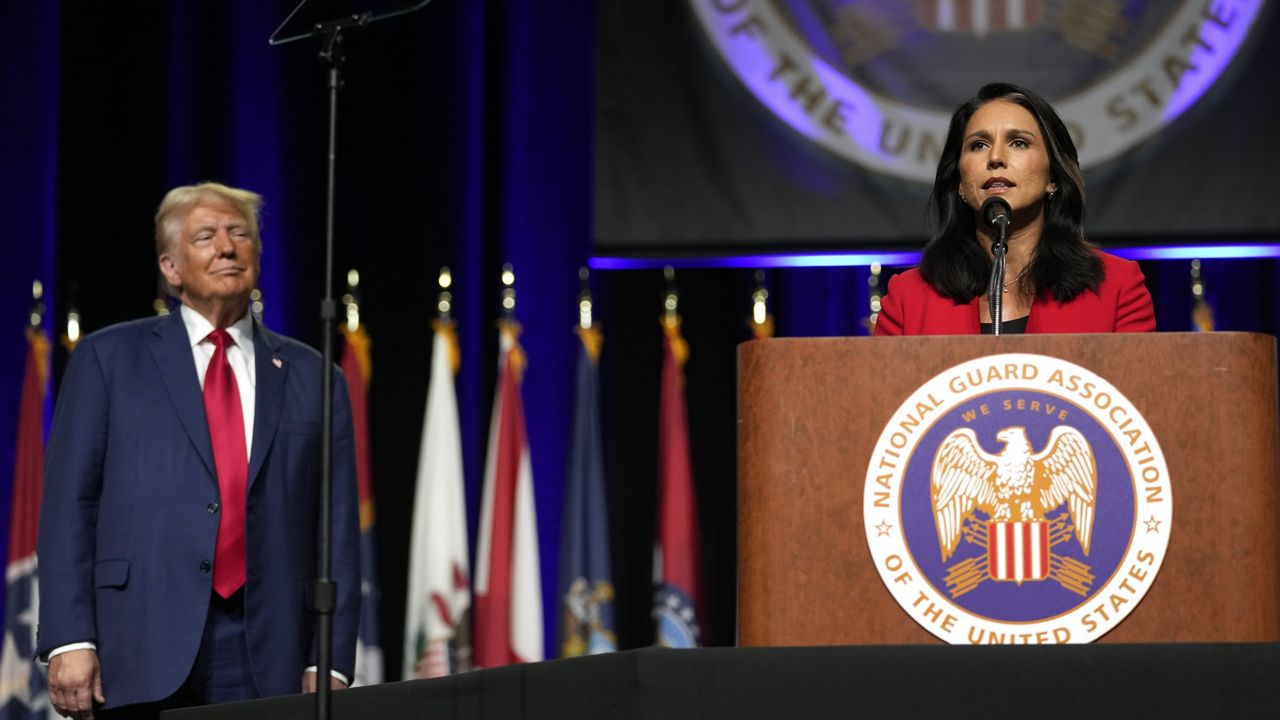With the virtual roll call vote closed, Vice President Kamala Harris became Democratic Party's nominee for president of the United States, capping a frenzied period in American politics that saw President Joe Biden step aside from the ticket more than two weeks ago following weeks of interparty drama after his poor performance in a June debate against Republican candidate Donald Trump.
According to the DNC, 99% of the pledged and automatic delegates -- 4,567 in all, far more than the 1,976 she needed to clinch the nomination -- participated in the virtual roll call and cast their votes in support of Harris.
"With the support of 99% of all participating delegates in the virtual roll call, Vice President Harris has historic momentum at her back as we embark on the final steps in officially certifying her as our Party’s nominee," said DNC chair Jaime Harrison and DNCC Chair Minyon Moore in a statement. "We thank the thousands of delegates from all across the country who took seriously their responsibility throughout this process to make their voices – and the voices of their communities – heard."
The results still need to be certified by Convention Secretary Jason Rae and the nomination still must be accepted by Harris and her yet-to-be-named running mate, expected to be announced on Tuesday.
Harris' formal ascent to the top of the Democratic ticket comes after the party coalesced around her bid remarkably quickly.
In the days and weeks since President Joe Biden announced he was suspending his campaign and endorsing Harris to take his place at the top of the ticket, the vice president has received the backing of nearly every major Democratic Party power player, including former President Barack Obama and former first lady Michelle Obama, ex-House Speaker Nancy Pelosi, Senate Majority Leader Chuck Schumer and House Democratic Leader Hakeem Jeffries, in addition to raising major sums of money -- to the tune of a record $310 million in July.
She's also virtually erased Trump's leads in polling in both nationwide and state-level polls in must win battlegrounds, closing the gap with the Republican former president and, in some surveys, overtaking him.
Harris is the first woman of color to lead a major political party's ticket, and could become the first woman, Black woman and person of South Asian descent to become president.
Online voting in the virtual roll call, conducted ahead of the party's in-person convention later this month in Chicago due to over concerns about ballot access deadlines in some states, kicked off last Thursday. Harris clinched enough votes last Friday to become the party's presumptive nominee.
In May, Democrats announced they would conduct a virtual roll call ahead of the party’s official in-person convention on Aug. 19-22 to ensure Biden would be on the ballot in Ohio. The move was in response to the state’s Aug. 7 deadline for candidates to qualify.
State lawmakers in Ohio have since passed a bill pushing back the deadline to facilitate the date of the Democratic National Convention. But Democrats have said it is necessary to move forward with the virtual roll call before the convention regardless, expressing concerns that they could be subject to legal challenges should they miss those deadlines. There will still be a ceremonial roll call vote at the convention in Chicago later this month.
After the roll call vote, all eyes will be on Harris as she's set to announce her running mate. She's expceted to makte that announcement Tuesday ahead of a planned battleground state tour with her yet-to-be-announced VP pick.
The turn of events that saw Harris top the Democratic ticket is the culmination of a career in politics that began in the Golden State and saw her ascend to the second-highest office in the land.
Kamala Devi Harris is the daughter of academic immigrant parents who met at the University of California, Berkeley, in the 1960s: Shyamala Gopalan, who emigrated to America from India, was a biomedical scientist who furthered cancer and oncology research, and Donald Harris, a retired economics professor who emigrated to the United States from Jamaica.
She was born in Oakland, California, a short distance away from Berkeley, where she would spend much of her childhood. After graduating from high school, Harris attended Howard University, the Washington, D.C.-based historically Black university, where she spent her self-professed "formative years" and first discovered her love of politics.
After graduating from Howard, she earned her law degree at UC Hastings — now the University of Californa, San Francisco — and was admitted to the California Bar in 1990. Soon after, she was hired as a deputy district attorney in Alameda County.
In 2004, she was elected as the district attorney of San Francisco, becoming the first person of color to hold the position. She was immediately faced with a test of her campaign promise to never seek the death penalty: four months after being sworn in, a San Francisco police officer was shot and killed in the line of duty. As attorney general of California, a position she won in 2010, Harris became an advocate for privacy rights, becoming the vanguard for user privacy against Big Tech companies and striking a deal mandating that app stores prominetly display privacy policies. She promised to not defend the Prop. 8 gay marriage ban in court, later successfully arguing before the state supreme court that it was an unconstitutional law.
In 2016, Harris ran for U.S. Senate to replace the retiring Sen. Barbara Boxer, herself a longtime fixture in the Golden State. She won the endorsement of then-Gov. Jerry Brown and cruised to victories in both the primary and the general election.
Her Senate tenure placed her at the forefront of the resistance to then-President Trump’s policies, as she fiercely challenged his appointments, attacked his immigration family separation policy and voted to convict Trump on charges of abuse of power and obstruction of Congress during his first impeachment trial.
Harris' tough lines of questioning during committee hearings brought her nationwide attention. She first rose to prominence during the questioning of Attorney General Jeff Sessions and Deputy Attorney General Rod Rosenstein over the firing of FBI Director James Comey in 2017, and as a member of the Senate Judiciary Committee after Al Franken's resignation, she grilled then-Homeland Security Secretary Kirstjen Nielsen over the Trump administration's family separation policy at the border.
She also played key roles in the confirmation hearings of Supreme Court nominee Brett Kavanaugh and the questioning of Attorney General William Barr after the release of special counsel Robert Mueller's report about Russian interference in the 2016 election.
Though Harris warred with then-candidate Joe Biden on the campaign trail to the 2020 election, she became one of the first high-profile Democrats to drop out of the contest. In August 2020, she was selected to be his running mate, becoming the first Black person, first Indian American and third woman to be picked as the vice presidential nominee for a major party ticket.
As vice president, she’s repeatedly used her position as president of the Senate to break ties on crucial votes, and reportedly is part of "every core decision-making meeting" with Biden, according to National Security Adivsor Jake Sullivan. Much of her tenure in office has seen Harris on the road, speaking at college campuses across the country, rallying for Democratic candidates or in support of key administration positions, including voting rights and post-Roe reproductive policies.
She's been the voice of the administration at events promising aid and investments in marginalized communities and among people of color, as when she marked an award of billions of dollars for projects addressing climate change in Charlotte, N.C. in April. Harris has also been the tip of the spear for the White House on abortion rights, continually drumming arguments that reproductive rights are a matter of freedom and that Donald Trump is responsible for the patchwork state of abortion protections across the country.
While Harris has ridden a wave of energy in the days since Biden stepped down from the ticket, Democrats are expecting that the "good vibes" might not last forever, particularly as Trump and his allies sharpen their attacks on the vice president.
They've already gotten ugly, with Trump last week making false accusations about Harris' race that evoke his previous baseless claims about Barack Obama's birthplace -- taking to the National Association of Black Journalists convention in Chicago to accuse Harris of of only starting to identify as Black in recent years for political expediency -- and then doubling down in the days that followed.
She'll also have to contend with a slew of attacks about her role in Biden's Whtie House, particularly on immigration, with Trump's allies attempting to paint her as the administration's "border czar," even though that wasn't her role.
Spectrum News' David Mendez contributed to this report.




